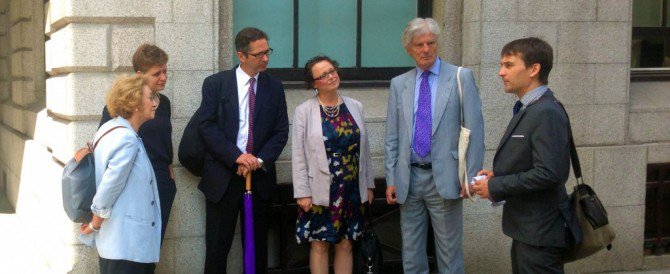There is common misperception in the western world that corruption is something that happens somewhere else. It’s a dangerous misunderstanding which leaves the public and politicians here thinking they can’t do much, if anything to help fight the problem. Tackling this misperception is a key part of the work of Global Witness.
So I was delighted to be invited to lead a walking tour of the City of London for a cross-party group of British parliamentarians this week, to help discuss this. The tour touched on the role the UK financial sector plays in aiding and abetting corruption, and a range of other criminal activity. In particular how banks do this by taking money looted from the state by corrupt officials in developing countries.

The key points included:
- The scale of the problem. In 2011 the financial regulator found that 75% of UK banks were not doing enough to prevent the flow of dirty money.
- A lack of enforcement of the laws designed to prevent money laundering means that banks have no incentive to change.
- The solution is for senior executives to be held personally accountable by losing their bonuses or jobs, being barred from practice, or in the worse cases going to jail.
- Why this ultimately matters: there is a devastating human cost. The theft of vast sums from country’s budgets leaves millions trapped in extreme poverty.